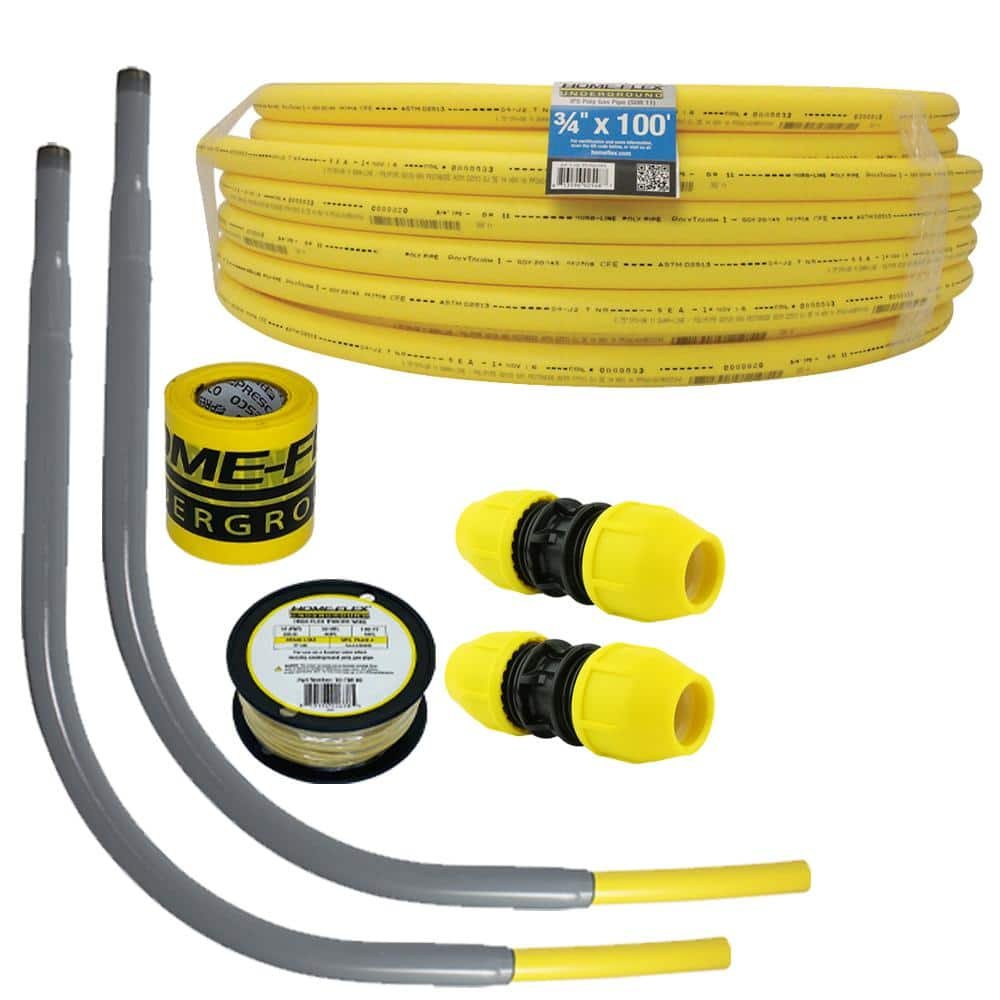Steel pipes are the preferred choice for natural gas distribution underground. Their durability and resistance make them ideal for the job. As the demand for natural gas continues to rise, ensuring the right type of pipe is crucial. Understanding what kind of pipe is used for natural gas underground is essential for safety and efficiency. Let’s dive deeper into this vital aspect of natural gas infrastructure.
What Kind of Pipe is Used for Natural Gas Underground
Welcome to our guide on the types of pipes used for natural gas pipelines installed underground. Natural gas is a vital energy resource that powers homes, industries, and businesses around the world. The safe and efficient transportation of natural gas requires the use of durable and reliable piping systems. In this article, we will explore the different kinds of pipes suitable for underground natural gas transmission, their characteristics, and why choosing the right pipe is crucial for the integrity and safety of gas distribution networks.
The Importance of Choosing the Right Pipe
When it comes to transporting natural gas underground, the choice of piping material is crucial. The pipe used must be able to withstand the high pressure and corrosive nature of natural gas while ensuring the safety of the environment and surrounding communities. Additionally, underground pipes are subjected to various external factors such as soil movement, temperature changes, and moisture, making durability and integrity key considerations.
Types of Pipes Used for Natural Gas Transmission
There are several types of pipes commonly used for underground natural gas transmission, each with its advantages and suitable applications. The two primary materials used for natural gas pipelines are steel and plastic (such as polyethylene).
1. Steel Pipes
Steel pipes have been a traditional choice for natural gas transmission due to their strength and durability. These pipes are made of carbon steel and are available in various sizes and thicknesses to accommodate different pressure requirements. Steel pipes are known for their resistance to extreme temperatures and high-pressure conditions, making them ideal for underground gas transmission.
However, one of the challenges associated with steel pipes is corrosion. Over time, exposure to moisture and other environmental factors can lead to corrosion, compromising the integrity of the pipeline. To mitigate this risk, steel pipes are often coated with protective materials such as fusion-bonded epoxy or polyethylene to prevent corrosion and extend their lifespan.
2. Polyethylene (PE) Pipes
Polyethylene pipes have gained popularity in recent years for natural gas distribution networks due to their flexibility, corrosion resistance, and ease of installation. These plastic pipes are lightweight and flexible, making them suitable for various soil conditions and terrain types. Polyethylene pipes are also resistant to chemical reactions, making them an excellent choice for transporting natural gas.
One of the key advantages of polyethylene pipes is their fusion welding capability, which creates seamless joints that are strong and leak-proof. This feature reduces the risk of gas leaks and enhances the overall safety of the pipeline system. Additionally, polyethylene pipes have a long service life and require minimal maintenance, making them a cost-effective option for underground gas distribution.
Factors to Consider When Selecting a Pipe
When selecting a pipe for underground natural gas transmission, several factors need to be taken into account to ensure the safety and efficiency of the gas distribution system:
- Pressure rating and capacity requirements
- Corrosion resistance
- Installation and maintenance costs
- Soil conditions and terrain characteristics
- Environmental impact
- Regulatory compliance and safety standards
In conclusion, choosing the right pipe for underground natural gas transmission is critical to the integrity and safety of gas distribution networks. Steel and polyethylene pipes are two common materials used for natural gas pipelines, each with its unique characteristics and benefits. While steel pipes offer strength and durability, polyethylene pipes provide flexibility and corrosion resistance.
By considering factors such as pressure requirements, corrosion resistance, installation costs, and environmental impact, gas utilities can select the most suitable pipe for their underground gas transmission projects. Ultimately, prioritizing safety, durability, and efficiency in pipeline design is essential for ensuring a reliable and sustainable natural gas supply for communities and industries.
PE Gaspipe and Everything You Need to Install It
Frequently Asked Questions
What factors should be considered when selecting a pipe for natural gas underground?
When choosing a pipe for natural gas underground, factors such as material durability, corrosion resistance, flexibility, and compatibility with the specific type of gas being transported are crucial. Additionally, the pipe should meet safety regulations and codes set by relevant authorities.
Which types of pipes are commonly used for underground natural gas pipelines?
Commonly used pipes for underground natural gas pipelines include polyethylene (PE), steel, and coated steel pipes. Each type offers different advantages in terms of cost, durability, and installation requirements.
What are the benefits of using polyethylene pipes for underground natural gas lines?
Polyethylene pipes are popular for underground natural gas lines due to their flexibility, resistance to corrosion, and ability to withstand ground movement. They are also easier and quicker to install compared to some other types of pipes.
How important is it to ensure proper installation of underground natural gas pipes?
Proper installation of underground natural gas pipes is critical to prevent leaks, ensure structural integrity, and maintain the safety of the pipeline. Following manufacturer guidelines and industry best practices during installation is essential to minimize risks and ensure long-term performance.
Final Thoughts
In conclusion, the choice of pipe for natural gas underground is crucial for safety and efficiency. Steel pipe is commonly used for its durability and strength, allowing it to withstand the pressures of underground environments. Properly coated and cathodically protected steel pipes are recommended to prevent corrosion and ensure longevity. When selecting a pipe for natural gas underground, prioritize quality and reliability to safeguard the integrity of the system.

